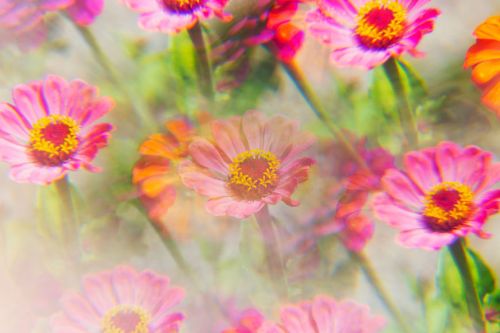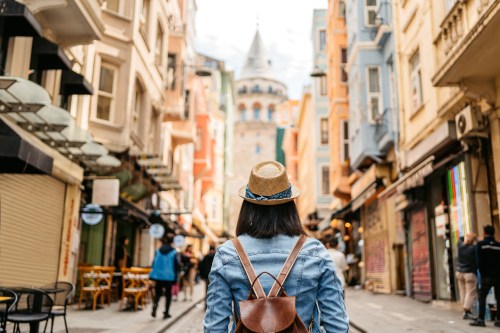In some cities and states, it’s not even legal to sell lattes laced with CBD. And then you’ve got Oakland, California, which decriminalized “magic mushrooms” known to cause hallucinations in 2019. Similarly, over in Colorado, residents of Denver narrowly voted that year to make possession and consumption of psilocybin mushrooms “the lowest law enforcement priority.” (In Colorado, the mushrooms remain illegal, however, and it is still a felony to sell them.) Other cities have since followed suit with decriminalization, but Oregon went a step further on November 3, 2020, passing a measure with 56.12 percent of the vote to legalize psilocybin.
Experts in This Article
Albert Garcia-Romeu, Ph.D. is a member of the Psychiatry and Behavioral Sciences faculty at the Johns Hopkins University School of Medicine and a Guest Researcher at the National Institute on Drug Abuse Intramural Neuroimaging Research Branch, where he studies the effects of psychedelic drugs in humans, with a focus on psilocybin as an aid in the treatment of addiction.
Given how rapidly opinions and laws are changing with regard to cannabis, these new moves at state and city levels raise the question if magic mushrooms are slated to get the marijuana treatment. The medical community is split on the safety of psilocybin mushrooms with some experts pointing to true health benefits of these substances, including helping with anxiety and depression, chronic pain, and irritable bowel syndrome. Conversely, consumption can lead to psychotic episodes or engagement in potentially reckless behavior.
Many questions about psilocybin mushrooms remain in part because the medical community—and the U.S. government—has been unwilling to study them and other psychedelic compounds. Therefore, growing interest comes from independent research organizations, like Multidisciplinary Association for Psychedelic Studies (MAPS), The Beckley Foundation, and the Heffter Research Institute. (The soap company Dr. Bronner contributes to MAPS’s research, although its latest donation is intended for research into MDMA, another psychedelic drug, and mental health issues.)
American citizens hold conflicting views on psychedelic mushrooms, too. As Time pointed out, 53 percent of respondents to a 2017 YouGov survey said they support medical research of psychedelic drugs, yet a Vox survey from 2016 found that only 22 percent of people support decriminalizing magic mushrooms.
“Criminal penalties for drug use and/or possession aren’t particularly effective at deterring use.” —Albert Garcia-Romeu, PhD
With decriminalization and legalization, it’s likely that more people across the country will become curious about psychedelic mushrooms and want to experiment with them, says Albert Garcia-Romeu, PhD, an assistant professor of psychiatry and behavioral sciences at Johns Hopkins University School of Medicine who specializes in psychedelics. “My concern is that like most drugs, psilocybin can be abused and carries risk, and that local decriminalization initiatives like those in Denver may open the door to an uptick in irresponsible use, particularly by individuals claiming to provide ‘therapeutic’ services, but who have little or no qualification to do so, and among vulnerable populations like people struggling with depression or other mental health conditions,” he says. Dr. Garcia adds that if there’s an uptick in irresponsible psilocybin use, it will work against the medical community’s lobbying efforts to study its benefits.
Still, Dr. Garcia personally sees the Denver’s decriminalization of psilocybin mushrooms as a step forward. “Criminal penalties for drug use and/or possession aren’t particularly effective at deterring use, and generally tend to penalize already marginalized communities like the poor and people of color,” he says, adding that criminal charges for psilocybin possession comprise only a very small percentage of drug arrests.
For now, we’ll have to watch what happens in Oregon, Oakland, and Denver to see how it sets the tone for cities and states nationwide. “I am cautiously optimistic about the ramifications of the vote in Denver and other similar initiatives, but ultimately time will tell how this plays out,” says Dr. Garcia.
Originally published May 9, 2019; updated June 7, 2019; updated November 5, 2020.
Sign Up for Our Daily Newsletter
Get all the latest in wellness, trends, food, fitness, beauty, and more delivered right to your inbox.
Got it, you've been added to our email list.











